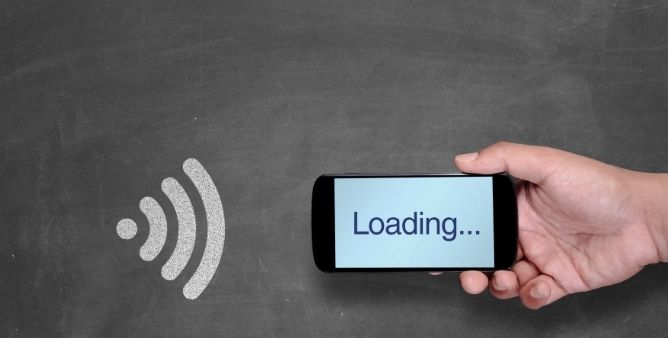
As much as we strive to be dedicated and reliable employees, there are times when we all need a break from the daily grind. Whether it’s for some much-needed rest and relaxation or to attend to personal matters, taking a day off can be crucial for maintaining our well-being. However, requesting time off can sometimes be met with suspicion or resistance from our employers. This is where the art of sounding sick on the phone comes in handy.
In this comprehensive guide, we will explore various techniques and strategies to help you convincingly sound sick when calling in for a day off. We’ll cover everything from choosing a believable illness to effectively communicating with your boss. So, let’s dive in and discover how to master the art of sounding sick on the phone.
We all have those days when we just need a break from work. Whether it’s due to exhaustion, personal matters, or simply needing some time for ourselves, taking a sick day can provide the respite we need. However, requesting time off can be met with skepticism or resistance from our employers. That’s where the skill of sounding sick on the phone comes into play.
Mastering the art of sounding sick on the phone involves a combination of timing, preparation, and effective communication techniques. By following the strategies outlined in this guide, you can increase your chances of successfully convincing your boss that you’re genuinely unwell and in need of a day off.
Understanding the Importance of Timing
Timing plays a crucial role in successfully sounding sick on the phone. Choosing the right day to call in sick can make a significant difference in how believable your excuse appears to your employer. Here are some factors to consider when determining the ideal day for your sick call:
- Avoid Mondays and Fridays: Calling off on a Monday or Friday may raise suspicions as these are commonly associated with long weekends or extended breaks.
- Random Middle-of-the-Week Days: Opt for a random day in the middle of the week to avoid arousing suspicion. This can make your absence appear less calculated and more genuine.
- Coordination with Other Illnesses: If someone else at work has recently been sick or if it’s flu season, it can help to call off during a time when illnesses are more prevalent. This can make your absence seem more plausible.
Remember, it’s essential to prioritize your well-being and mental health. If you genuinely need a day off, don’t hesitate to take it, regardless of the day of the week or other circumstances.
Choosing a Believable Illness
When it comes to sounding sick on the phone, choosing a believable illness is crucial. Opt for an illness that is common, easily understood, and aligns with your personal history. Here are some common illnesses that can be used as excuses:
- Common Cold: A cold is a familiar ailment that most people have experienced at some point. Symptoms like a runny nose, congestion, and sore throat can easily be mimicked over the phone.
- Food Poisoning: Food poisoning can often cause nausea, vomiting, and stomach discomfort. Be cautious not to overdo the symptoms, as it can appear suspicious.
- Migraine: Migraines are intense headaches that can be debilitating. Use caution when using migraines as an excuse, as they can last for extended periods.
It’s essential to choose an illness that you are familiar with and can convincingly portray. Research your chosen illness, understand its symptoms, and be prepared to answer any questions your boss may have.
Familiarizing Yourself with Common Symptoms
To effectively sound sick on the phone, it’s crucial to familiarize yourself with the common symptoms associated with your chosen illness. By understanding the symptoms and their progression, you can convincingly communicate your condition to your boss. Here are some key symptoms to consider:
- Common Cold: Symptoms of a cold include a runny or stuffy nose, sneezing, coughing, sore throat, and fatigue.
- Food Poisoning: Symptoms of food poisoning can include nausea, vomiting, stomach cramps, diarrhea, and general weakness.
- Migraine: Migraine symptoms often include severe headache, sensitivity to light and sound, nausea, and dizziness.
By understanding the symptoms and being prepared to discuss them, you can enhance the believability of your excuse.
Properly Notifying Your Boss
When it’s time to call in sick, it’s important to notify your boss as soon as possible. Prompt communication demonstrates your professionalism and allows your employer to make any necessary adjustments to work schedules. Here’s how to properly notify your boss:
- Choose the Ideal Communication Method: Depending on your company’s policies and culture, determine whether it’s best to call, email, or send a text message. Choose the method that aligns with your workplace norms.
- Be Courteous and Professional: Begin your conversation with a friendly greeting and express your regret for not being able to come into work. Keep the conversation brief and to the point.
- State Your Illness: Clearly communicate that you are unwell and unable to fulfill your work duties for the day. Provide a brief explanation of your symptoms without going into unnecessary details.
- Express Your Availability: If you’re able to work remotely or be available for any urgent matters, mention your availability. This demonstrates your commitment to your work and can help alleviate any concerns your boss may have.
Remember to maintain a professional tone throughout the conversation and be respectful of your employer’s time and needs.
Effective Communication Techniques
When calling in sick, utilizing effective communication techniques can significantly enhance the believability of your excuse. Here are some tips to help you effectively communicate your condition:
- Stay Calm and Confident: Remain composed and confident during the conversation. Nervousness or hesitation can raise suspicions.
- Keep it Simple: Stick to the necessary information and avoid providing excessive details. Be concise and clear in your communication.
- Use a Soft and Weak Tone: Adjust your voice to sound a bit weak or tired. This can help convey your illness and add credibility to your excuse.
- Keep Your Story Consistent: If you need to follow up with any additional information, make sure it aligns with your initial explanation. Consistency is key to maintaining credibility.
By employing these communication techniques, you can effectively convey your condition and increase the chances of your boss believing your excuse.
Demonstrating Illness Through Your Voice
When calling in sick, your voice can be a powerful tool in conveying your condition. By making subtle adjustments to your tone, pace, and manner of speaking, you can enhance the believability of your illness. Here are some techniques to help you sound convincingly sick:
- Speak Softly: Lower the volume of your voice slightly to convey weakness or fatigue.
- Slow Down: Speak at a slightly slower pace to give the impression of feeling under the weather.
- Use a Nasal Tone: Mimic the sound of congestion by speaking through your nose subtly.
- Add Coughs and Sniffles: Incorporate occasional coughs or sniffles into your conversation, but use them sparingly and naturally.
Remember to strike a balance between sounding sick and still being intelligible. Overdoing these techniques can make your excuse appear forced or disingenuous.
Providing Updates and Availability
Once you’ve called in sick, it’s important to keep your employer updated on your condition and availability. This demonstrates your commitment to your work and helps maintain open lines of communication. Here’s how to provide updates effectively:
- Check-In: If you’re able, send a brief message or email to your boss during the day to let them know how you’re feeling. This shows that you’re engaged and interested in your work responsibilities.
- Offer Assistance if Possible: If you’re capable of working remotely or addressing any urgent matters, communicate your availability. This demonstrates your dedication and willingness to contribute.
By providing updates and offering assistance, you can maintain a sense of professionalism and reassure your employer that you take your responsibilities seriously.
Returning to Work: Acting a Little Under the Weather
After taking a sick day, it’s crucial to return to work in a way that doesn’t arouse suspicion. Acting a little under the weather can help solidify the impression that you were genuinely ill. Here are some tips for your return:
- Appear Tired: If possible, avoid coming back to work energized and refreshed. Instead, maintain a slightly tired demeanor to reinforce the idea that you were unwell.
- Avoid Overexertion: Pace yourself throughout the day and avoid taking on excessive tasks. This can help maintain the illusion of recovering from an illness.
- Reference Your Illness: If coworkers or your boss inquire about your absence, briefly mention your illness without going into unnecessary details. Keep your explanation consistent with what you initially communicated.
By acting a little under the weather upon your return, you can further solidify the belief that you were genuinely sick.
Frequently Asked Questions (FAQs)
How do I choose the right illness to sound convincingly sick?
When choosing an illness, opt for one that is common, easily understood, and aligns with your personal history. Research the symptoms to ensure you can convincingly portray them.
How soon should I notify my boss when calling in sick?
It’s best to notify your boss as soon as possible. Reach out the evening prior or early in the morning of the day you need off to allow your employer time to adjust work schedules if necessary.
Can I work remotely while taking a sick day?
Depending on your illness and work responsibilities, you may be able to work remotely. Communicate your availability and willingness to contribute if possible.
How can I maintain consistency in my story when providing updates?
Stick to the symptoms and explanation you initially provided. Avoid introducing new details or contradicting your previous communication.
What if my boss asks for a doctor’s note?
Be prepared for the possibility of your boss requesting a doctor’s note. Research local laws and company policies regarding sick leave to understand your rights and obligations.
Remember, while it’s essential to understand the techniques and strategies for sounding sick on the phone, it’s always best to prioritize your well-being and mental health. Taking care of yourself is crucial for long-term success and happiness in both your personal and professional life.
Conclusion
Mastering the art of sounding sick on the phone can be a valuable skill when you need a day off from work. By understanding the importance of timing, choosing a believable illness, and effectively communicating with your boss, you can increase your chances of successfully requesting time off without arousing suspicion.
Remember to prioritize your well-being and use these strategies responsibly. Taking care of yourself is essential for maintaining a healthy work-life balance. So, the next time you need a day off, utilize these techniques to convincingly sound sick on the phone and enjoy some well-deserved rest and relaxation.






